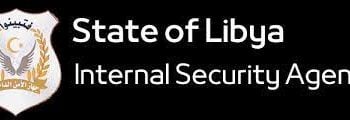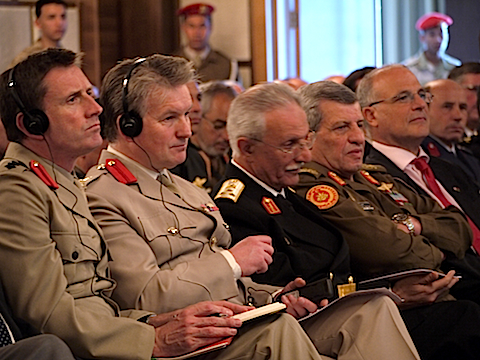By Ashraf Abdul Wahab.
Tripoli, 3 December:
Former undersecretary of health Adel Abushufa has won his second appeal against an Integrity Commission ruling . . .[restrict]that saw him suspended from office back in April.
Sunday’s decision by the First Administrative Chamber of the Tripoli Appeals Court comes too late for Abushafa, however, with the Kib government in which he served now out of office. It nevertheless does mean that he will be able to seek public office in future.
Following his initial disbarring in April, Abushufa lodged an appeal which he won in July. He was prevented from returning to office by then Health Minister Fatima Hamroush, however, after the Integrity Commission launched its own appeal against the appeal court’s ruling.
Established under the NTC, the Integrity Commission is a 12-man body mandated to investigate any person seeking high political office for ties with the Qaddafi regime or evidence of criminal wrongdoing.
In addition to having had to join the revolution before 20 March 2011, under no circumstances may people in the following categories, among others, hold public office in Libya according to the Regulation:
- Members or commanders of the Revolutionary Guards;
- Members of the Revolutionary Committees;
- Student association directors after 1976;
- Those who were “known for glorifying the regime of Muammar Qaddafi or his call for the ideas of the Green Book [Qaddafi’s political philosophy], whether through various media or public speeches;”
- Those who “stood against the February 17 Revolution” by means of incitement, aid, or collusion;
- Those who were convicted of corruption or stealing public funds;
- Those who participated in any capacity in the imprisonment and torture of Libyans during the rule of the former regime;
- Those who committed or participated in hostile acts against Libyans in the opposition, whether abroad or in Libya;
- Those who seized private property or participated in seizing property during the previous regime;
- Those who were involved in stealing public funds or enriched themselves at the expense of the Libyan population, or who accumulated wealth in Libya or abroad in an illegal manner;
- Those who had commercial dealings with the sons of Muammar Qaddafi or his close associates;
- Those who formerly held positions of leadership that directly related to the sons of Muammar Qaddafi, and their institutions;
- Recipients of awards or money from the former regime by illegal means;
- Those who obtained an academic degree on a subject related to the Qaddafi’s Green Book or Third Universal Theory.
The Commission is headed by Hilal Izzedine Sanusi, a former political prisoner and president of the First Court in Marj. Eight of the members have legal backgrounds and degrees in law, whilst the remaining four includes three academics and a businessman. [/restrict]









